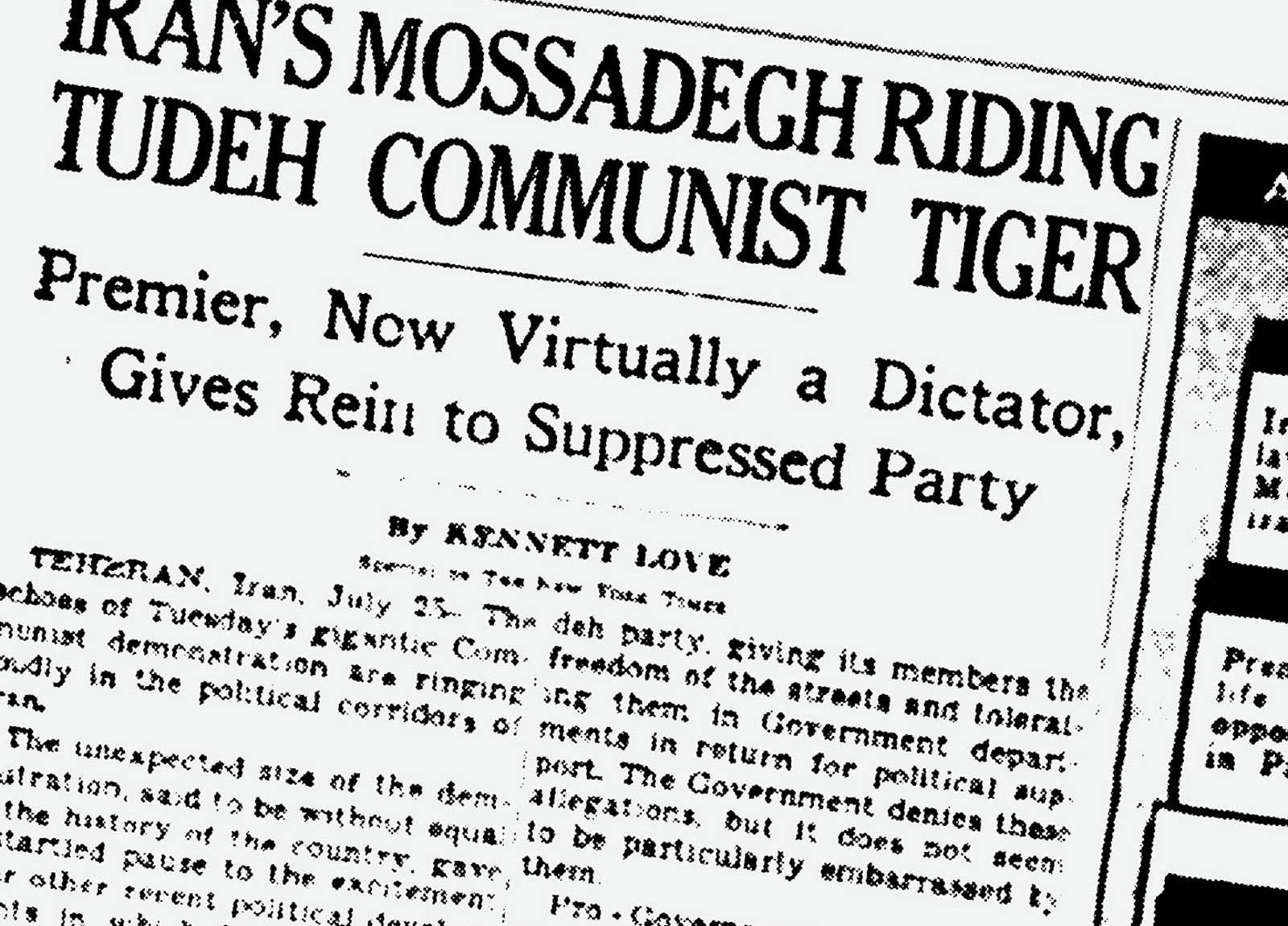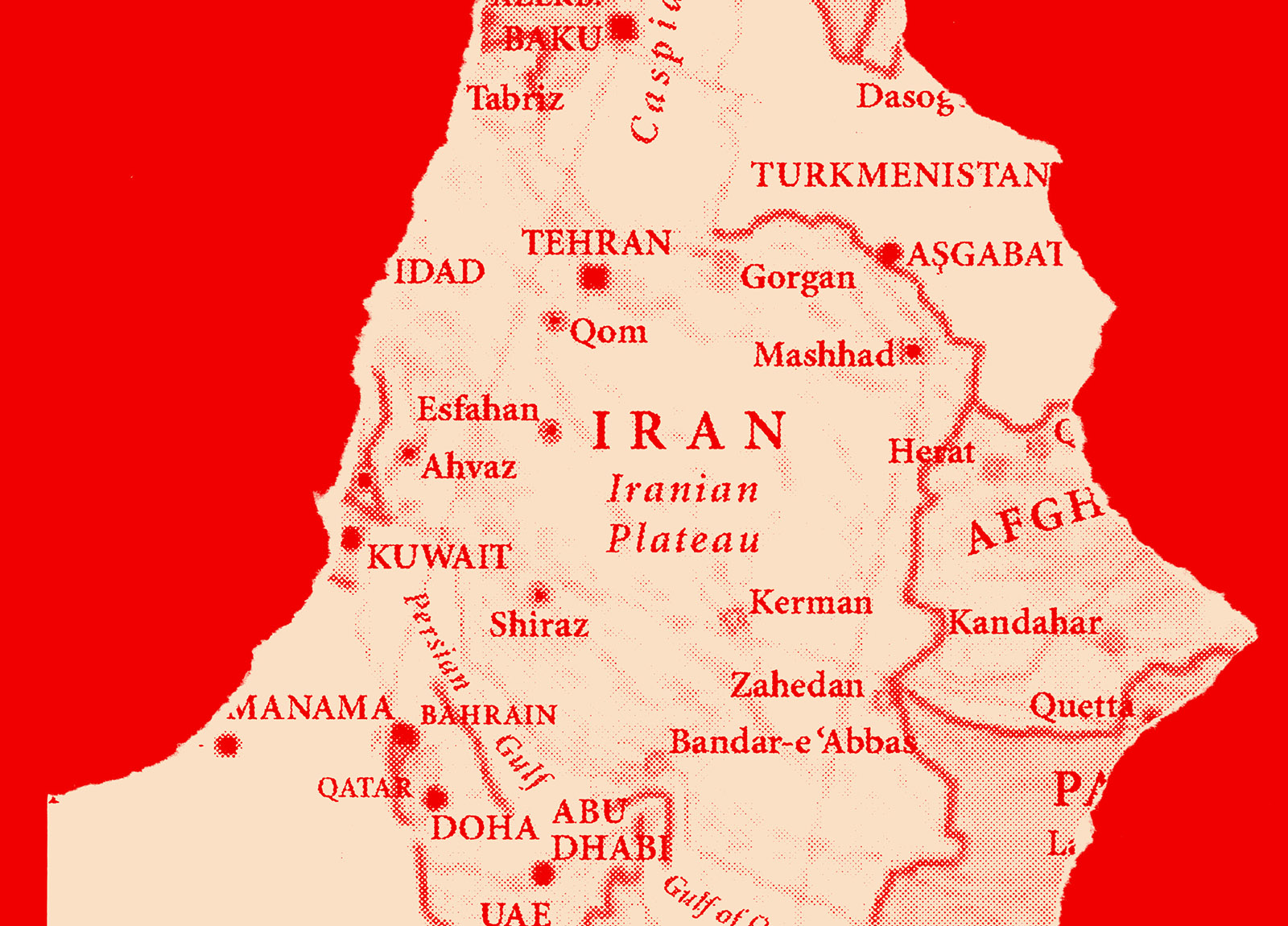Elected prime minister in 1950 by the Iranian parliament, Mohammed Mossadegh was a popular figure. During his tenure, he introduced a range of social and economic policies, among them social security, land reform, higher taxes and — most significantly — the nationalization of the Iranian oil industry. Great Britain had controlled Iran’s oil for decades through the Anglo-Iranian Oil Company.
In response, Britain appealed to the United States for help, and in August 1953, the CIA successfully orchestrated Mossadegh’s overthrow, toppling Iran’s government. Mossadegh spent the rest of his life under house arrest after the restoration of power to Mohammad Reza Pahlavi, the last Shah of Iran, who ruled for another 25 years until the 1979 revolution.
While the CIA actively infiltrated Iranian media in the lead-up to the coup — bribing newspaper editors to print misinformation — the New York Times was demonizing Mossadegh as a communist sympathizer. A July 1953 article titled “Iran’s Mossadegh Riding Tudeh Communist Tiger” accused him of allowing the communist Tudeh Party to “infiltrate” his government and castigated him for “expressing anti-American and pro-Soviet sentiments.” In reality, the relationship between the party and Mossadegh constantly fluctuated, and the Tudeh party often directly opposed Mossadegh. The Times’ efforts to tie Mossadegh to the communists was little more than Cold War red-baiting.
Just eleven days before the coup began, the editorial board hysterically warned that “a plebiscite more fantastic and farcical than any ever held under Hitler or Stalin is now being staged in Iran by Premier Mossadegh.”
On the first day of the coup, The Times abandoned all pretenses: “Iran is a weak, divided, poverty-stricken country which possesses an immense latent wealth in oil and a crucial strategic position,” the newspaper published. “Thanks largely to Dr. Mossadegh, there is much to fear in Iran.”

Who had much to fear? Not the Iranians, presumably, but Western capitalism and its oil interests in the country. The Times echoed this naked preference for imperial control of Iran in another mid-coup editorial:
“These developments bode little good for the West. Premier Mossadegh has characterized the movement he heads as a ‘national rising’ to oust the foreigners who have ‘extended their hands’ into Iran. But the ‘foreigners’ to him are primarily the United States and Britain rather than Soviet Russia . . .”
The Times openly celebrated the rule of a military junta and the reinstallation of the monarchy — and, in particular, Iran’s newfound friendliness with U.S. and British oil companies. The paper cast the Shah as a hugely popular returning hero, headlining a front-page story, “Shah, Back in Iran, Wildly Acclaimed; Prestige at Peak.” The newsroom praised the new regime for its “War on Reds” and wrote of “practical and fair” agreements that facilitated the flow of Iranian oil to the West, which, it argued, would ensure a “minimum of disturbances to [oil] prices.” Meanwhile, Iranian control of oil could “create chaos in world oil markets.”
The Times’ attitude toward the coup can be summed up by an article appearing in its 1953 “Year in Review”: “1953 was another year of uncertainty in the struggle between the free and Communist worlds,” read the piece. “In 1953, there were pluses and minuses for the West. The principal plus was the downfall of Premier Mohammed Mossadegh in Iran.”
While the coup resulted in material gains for the West, it was not a “principal plus” for Iranians. They would suffer under the U.S.-backed Shah’s dictatorship until the 1979 Islamic Revolution.


